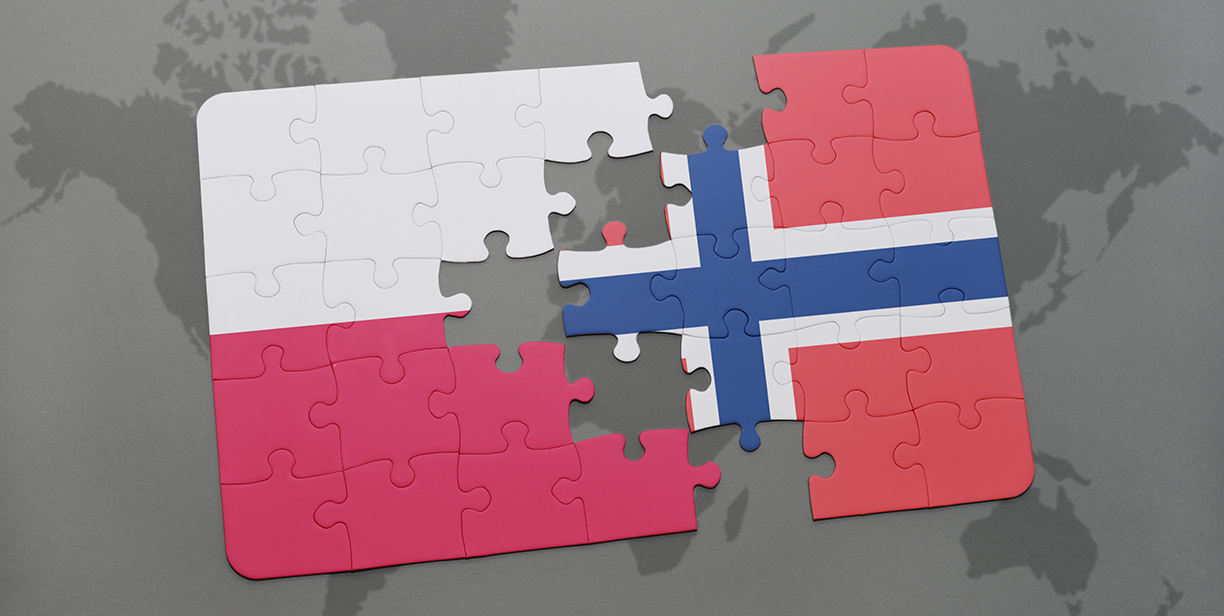Geographic proximity between Poland and Norway affects Polish nurses’ lives and facilitates on-going mobility.
By Elżbieta M. Goździak and Izabella Main
In a recent blog post, Taylor wrote about the effects of the geographic proximity between Norway and Sweden on the lives of Swedish nurses who work in Norway, but continue to live, parent, and maintain meaningful relationships in Sweden. Taylor wondered whether the relative proximity of Poland and Norway, with frequent and cheap flights between the two countries, has similar consequences for Polish nurses employed in Norway.
Settled migrants and sojourners
Some of the Polish nurses we interviewed have settled permanently in Norway and brought with them their children and partners. In a couple of cases, they sought employment in Norway because they thought their children needing specialized medical attention would be better off in Norway than in Poland. On the other hand, many of the more recently arrived nurses see themselves as sojourners working in Norway to save money to buy a flat or a house in Poland and return home.
Going home between assignments
Whether they see themselves as permanently living in Norway or returning to Poland, the geographic proximity of the two countries affect many aspects of the nurses’ lives. Those who have secured their jobs with the help of recruitment agencies, often work on a series of short-term assignments with some “stand-by” times between the assignments.
Since many of the nurses working on contracts with recruitment agencies are provided with housing, they have to vacate the accommodations as they await a new placement. Most nurses go to Poland to stay with family if the “stand-by” time is longer than a couple of days. It is cheaper to book a flight and stay with parents or friends than to pay for a hotel in Norway. Short-term rentals in Norway are also not an option; they are both expensive and scarce.
Geography facilitates on-going mobility
Polish nurses who weaned themselves from recruiters and have contracts with hospitals, clinics, and nursing homes no longer have to deal with “stand-by” times as they are settled in the workplace and have permanent housing of their own. But they too benefit from the proximity of Poland and Norway. Many Polish families are close knit and maintaining frequent contact is important, especially between grandparents and grandchildren.
Several of the nurses we interviewed also emphasized the importance of their children spending vacations in Poland to practice Polish with their peers. For many Poles, knowing the Polish language is closely related to the primordial notion of identity. Some nurses with small children worried more about their children’s ability to speak Polish than their facility in Norwegian. Of course, it is not true of everybody, but for those assuming that they will be returning to Poland soon, these are important considerations.
Nurses who have returned to Poland also benefit from the closeness of Norway. Grażyna spent a few years in Norway working in nursing homes, but eventually returned to Poland. When asked if her experiences working as a nurse in Norway in any way affected her professional work upon return, Grażyna said:
My experiences were important both for my professional development and my general outlook on life. I have not necessarily learnt many new nursing skills, but I have definitely gained a new ‘openness to the world’ (otwarcie na świat).
Since her return to Poland, Grażyna received a PhD in Health Sciences. She is currently teaching at a university in the south of Poland. Grażyna maintains her professional contacts with colleagues in Norway, including her capacity as an Erasmus program coordinator. She also had an internship at one of the nursing schools in Norway while pursuing her doctoral studies. She stays in contact with people she met in Norway via e-mail, visits the country every couple of years, and reads books in Norwegian to keep up her language skills.
Place, space, and distance
In our discipline, anthropology, place and space have always been recognized as important sites for meaning-making. Our research with Polish nurses indicates that distance is as important. It allows the nurses to maintain transnational and often translocal lives.
However, while geography plays a big role, proximity alone is not enough. This kind of mobility has become a reality only when visa and authorization restrictions were removed.
